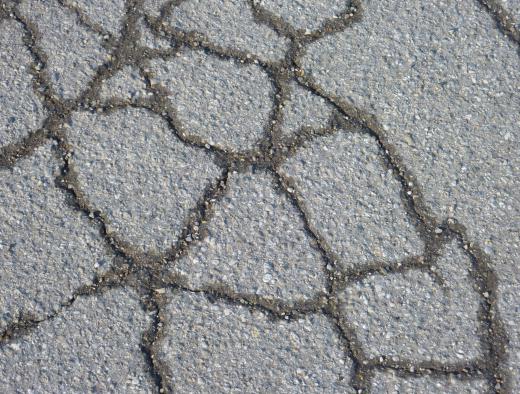An asphalt test is a type of materials test conducted for the purpose of learning more about a sample of asphalt. Asphalt testing is performed for a variety of reasons by an assortment of firms. Companies which offer asphalt testing have laboratories which can be used to analyze samples of asphalt using both destructive and nondestructive means. Many government highway and road departments have their own asphalt testing facility for the purpose of conducting tests on asphalt used by the government.
One common reason to conduct an asphalt test is for quality control and consistency reasons. The test is used to confirm that the asphalt contains the materials it is supposed to contain, and that the asphalt being produced by a company is of a uniform nature. Asphalt testing can also be used to check asphalt to confirm that it is safe for the recommended application, or to inspect asphalt in the wake of a road failure or similar incident to find out why the asphalt did not withstand normal use.

Some properties which can be explored include viscosity, ductility, cracking, and penetration. Asphalt testing can also be used to examine the binder used in the material, both independently and in an asphalt mix. During an asphalt test, the components of the asphalt are usually identified as well. Testing can include the use of equipment which is designed to rapidly age asphalt to see how it will hold up over several years, and equipment which puts tremendous pressure on asphalt which is designed to simulate conditions such as those found on trucking routes.

At the end of an asphalt test, the laboratory will prepare a written report discussing the findings of the test. The lab may indicate that the asphalt has passed or failed certain key tests, and provide additional information about the nature of the asphalt and its predicted strength over time. Inspecting asphalt is an important part of safe, reliable construction of roads, driveways, parking lots, and so forth, as application of poor quality asphalt can have consequences well into the future.

People who have reason to believe that asphalt test results are suspect or incorrect can request evaluation through an independent lab. Most labs are happy to undergo auditing to confirm that their methods and equipment are up to date, and they will provide the auditing lab with all of the information about how they performed their tests. Listings of independent labs which perform materials testing can often be found through professional organizations which promote high standards in materials testing.
Ever since she began contributing to the site several years ago, Mary has embraced the exciting challenge of being a About Mechanics researcher and writer. Mary has a liberal arts degree from Goddard College and spends her free time reading, cooking, and exploring the great outdoors.

